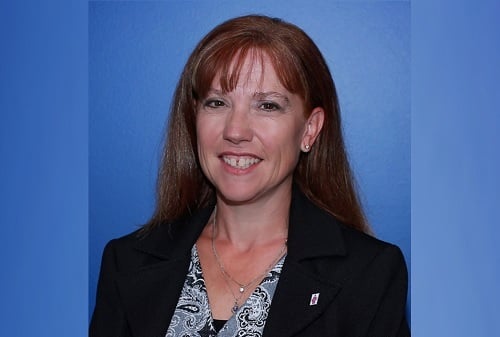

For a broker leading an agency in a small town in Alberta, the tough Level 1 licensing exam questions are already an obstacle to overcome, combined with a smaller talent pool to pull from when positions open up, which together can make it a challenge to attract new professionals into the insurance industry.
“When you bring in younger people, it’s hard to get them excited about insurance as it is. You get them into the office and there’s a three-month probation period, [so] you’ve got to get somebody licensed within that [timeframe],” said Vicki Livingstone (pictured), board president of the Insurance Brokers Association of Alberta (IBAA), and owner and manager of Freeman Insurance Agencies in Innisfail, AB.
“That puts a lot of pressure on the employee as well – I have three months or I’m going to lose my job? They can’t deal with the public, they can’t deal with insurance-related work for the public, they can’t advise, they can’t do anything until they actually have the Level 1 licensing.”
As the new president of the IBAA board, Livingstone has a lot on her plate already, from auto insurance reform to getting CAIB and CIP designations to be equivalent to Level 1 licensing exams. Most of the provinces have these equivalencies in place, but that hasn’t been the case in Alberta.
As it stands, around 64% of people who write the Level 1 exam for the first time can’t pass it and only 56% will eventually pass it, which means they’re writing it two or more times before they’re successful, explained George Hodgson, CEO of the IBAA.
“It’s had a significant effect. We believe that at any given point in time, there are about 100 positions available province-wide, particularly at the entry-level in the industry,” he said. “The other provinces, namely the two on each side of us, accept the professional designations as equivalent to licensing and that would take an awful lot of the pressure off. I hear almost every day that we can’t hire people, and, if we do hire them, we can’t get them past the Level 1 exam, and it’s a big problem.”
Hodgson added that he’s not saying the exam should be easy to write, but the current pass rate indicates that something else is going on.
“The frustrating part is that over the last number of years, particularly from 2015 onward, we had a huge spike in unemployment in Alberta due to the oil crisis,” explained Hodgson, adding that at the same time, “Here’s an industry that’s looking for people and have people looking to get into the industry, and they can’t.”
At one point, the General Insurance Council had examined the issue and determined that the CAIB and CIP designations could be equivalent to Level 1 licensing. Because this required a regulatory change, all the stakeholders had to be on the same page, including the IBAA, the Canadian Association of Direct Relationship Insurers, the Insurance Bureau of Canada, and the Insurance Institute of Canada. However, the issue couldn’t get high enough on the cabinet’s agenda to get it dealt with, even though everyone was on board.
Kicking off her new term as president, this issue will continue to be top of mind for Livingstone and the IBAA.
“Our first item on the agenda would be to do the equivalencies – it’s an easy one for the government – and then try to tackle some of the other issues,” she told Insurance Business.
